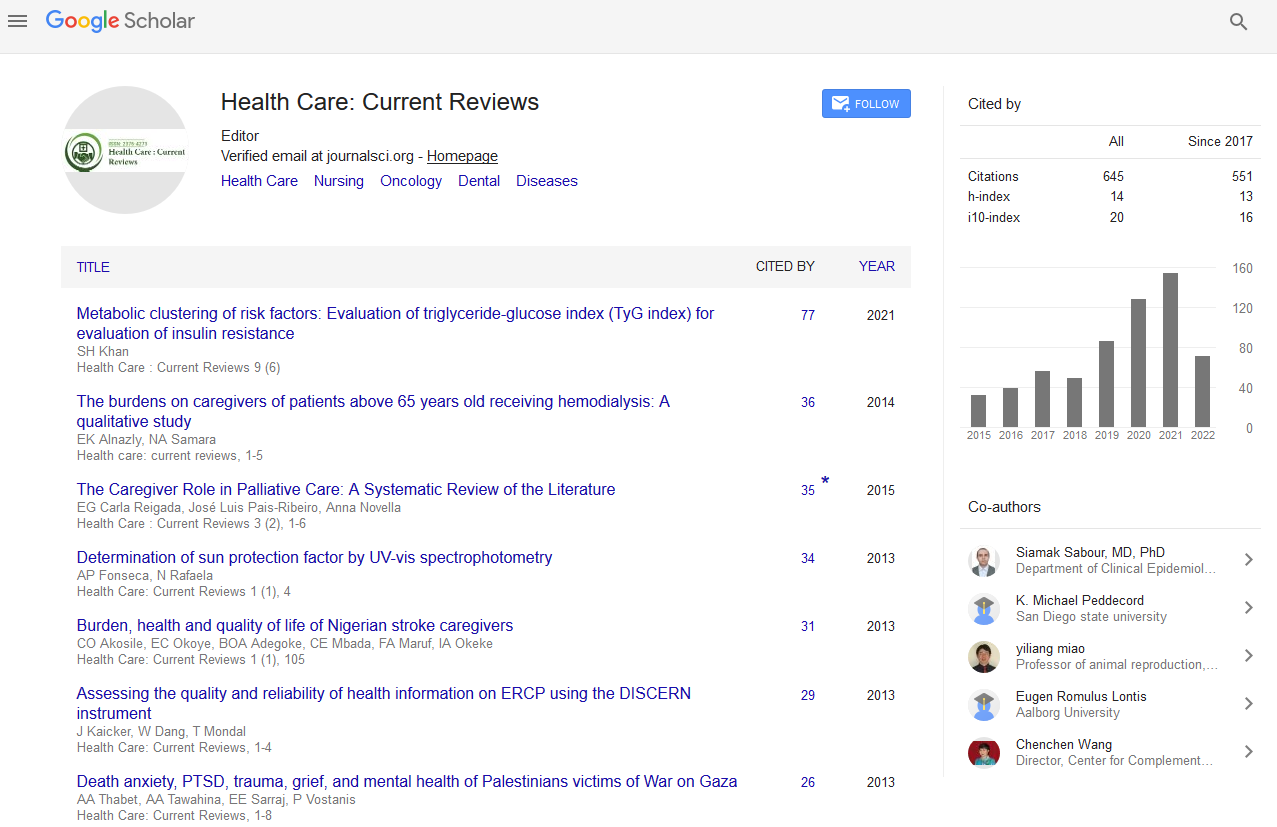PMC/PubMed Indexed Articles
Indexed In
- Open J Gate
- Academic Keys
- RefSeek
- Hamdard University
- EBSCO A-Z
- Publons
- Geneva Foundation for Medical Education and Research
- Google Scholar
Useful Links
Share This Page
Journal Flyer

Open Access Journals
- Agri and Aquaculture
- Biochemistry
- Bioinformatics & Systems Biology
- Business & Management
- Chemistry
- Clinical Sciences
- Engineering
- Food & Nutrition
- General Science
- Genetics & Molecular Biology
- Immunology & Microbiology
- Medical Sciences
- Neuroscience & Psychology
- Nursing & Health Care
- Pharmaceutical Sciences
TIME DISCOUNTING, PRESENT BIASES, AND HEALTH-RELATED BEHAVIORS: EVIDENCE FROM JAPAN
Global Health Economics Summit
July 25-26, 2016 Berlin, Germany
Myong-Il Kang and Shinsuke Ikedab
Korea University, Japan
Osaka University, Japan
Scientific Tracks Abstracts: Health Care: Current Reviews
Abstract:
Human health is considered the outcome of intertemporal choices under tradeoffs between a small immediate reward and a larger delayed reward. Health-related behaviors are thus affected by personal time preferences. Based on an internet-based survey conducted on Japanese adults, we contribute to the literature by incorporating the multifaceted nature of time discounting in an analysis of the associations between time preference and health-related behaviors. We find that, first, less patient respondents tend to exhibit worse health-related attributes. Second, present bias, which is measured by the degree of declining impatience, is positively associated with unhealthy behaviors for naïve respondents, who are unaware of their self-control problem. Third, such associations cannot be found in sophisticates, who are aware of that. As a policy implication, direct intervention policies, including �??nudging,�?� are more effective than a commitment device provision in correcting the unhealthy behaviors due to present bias. Fourth, the sign effect, wherein future losses are discounted at a lower rate than future gains, is negatively associated with unhealthy outcomes, although at weak statistical significance levels.
Biography :
Myong-Il Kang has completed his Ph.D. in economics at Osaka University in 2009, and is presently an assistant professor at Department of Business Administration in Korea University which was established in 1956 as a highest educational institute for the Korean residents in Japan. He and Shinsuke Ikeda, the professor of the Institute of Social and Economic Research (ISER), Osaka University, have found associations between time-preferences and human behaviors by using Japanese survey data. Their joint papers are published in several academic journals such as Journal of Health Economics, Health Economics, Economics and Human Biology, and Japanese Economic Review.
Email: mkang@korea-u.ac.jp


